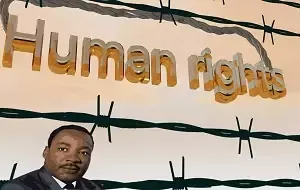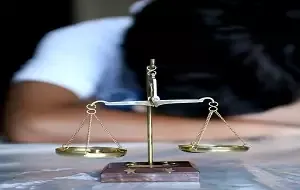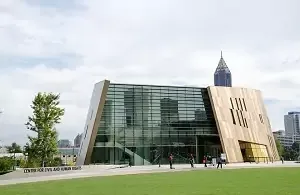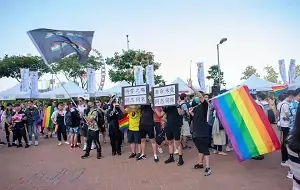What is Human right? Every human being seeks justice, peace,
love, and prosperity. Oppression, unrest, hatred, and poverty are considered bad.
All laws, institutions, and regulations have been made in society so that
human beings can get justice, peace, and prosperity and prevent the path of
unrest, injustice, and deprivation. These are human rights.
"Truth means
rights" and literally means "truth" and "truth". It is
as if the issue of human rights is in fact related to ethics. Literally, human
rights are laws, values , and institutions on
which all human beings have equal rights. In this regard, the basic condition
is to become human. Differences in color, race, religion, sex, language,
culture, social status, financial status, and political views do not affect an
individual's human rights.
To understand the moral
basis of human rights, it is important to know the fundamental differences
between ethics, ethics, and other human rights systems. In human rights, their
results are valued by moral values. The truth and veracity of human rights are
determined by their practical results. The sayings of great personalities do
not test human rights. Human rights credentials are not found in books, nor are
human rights subject to institutional credentials. Human rights are the essence
of centuries of collective human experience.
Human society is a
colorful manifestation of new changes and new possibilities that are emerging
every moment. As human beings, our primary problem is to organize and harmonize
these changes in such a way that each new stage improves the collective quality
of life in terms of protection, provision of human needs, the pursuit of happiness,
sustainable development and creativity.
Human society began its
journey through the jungle. There was a danger to human life in the forest. The
shadows of the three terrible realities of human habitation in the jungle,
namely insecurity, ignorance, and lack of resources, were very deep. These
three elements form the individual and collective psyche of ancient man. The
scale of individual and collective action of human beings is a very simple
principle, the stick of which is the buffalo. Today we call this principle the
law of the jungle. From the beginning of human civilization to the present day,
the focus of all religious, social, or political efforts has been on the
abolition of the law of the jungle and the adoption of such laws, values , and
standards. Ensure equal dignity, opportunities, and needs for all human beings,
regardless of physical, social, economic, or political power.
As a result of its
buffalo principle, many fundamental injustices have arisen in human society.
Individuals and groups in society have usurped the collective human resources
and deprived the majority of human beings of their rightful share. Thus
privileged and deprived classes came into existence in the society. Privileged
individuals and groups have created high and low perceptions in humans to
maintain their aggressive control over resources. Using natural traits such as
color, race, and sex, human-born groups were excluded from the developmental
and decision-making process.
The line between the
privileged and the underprivileged is constantly changing. Human society keeps
changing. At a particular point in history, the laws, values, customs, and
institutions found in human society are influenced by the current state of
human knowledge, the nature of the means of production, and the interaction of
political and social factors. Changes in these elements are the result of the turmoil. The desire for change is more prevalent among the backward sections of
the society who are suffering from various deprivations. Social groups that
have access to power. They are natural enemies of social change because they
fear that change will affect their current privileges.
The privileged minority
groups of the society have devised such tactics to protect their interests and
maintain the existing system and have given them legal, constitutional and
cultural justification to maintain human inequality. Its use reinforces social
discrimination based on caste, race, color, religion, sex, wealth, language,
social status or cultural identity.
The concept of equal
human dignity and the inalienable and inalienable rights of all human beings
originated between the sixteenth and seventeenth centuries. For the first time
in human history, an impartial examination of ancient beliefs, moral values,
principles, and social structures began. The individual and collective
well-being of human beings became the basic criterion of all analyzes, ideas, and values.
Religious reform
movements, renaissance, and political reforms laid the foundation for people's
sovereignty in society. The material structure required for this great change
was provided by the Industrial Revolution. In fact, all these changes reflect
different aspects of the human rights struggle.
This stage of social evolution was based on
a few assumptions.
(A) The planet Earth, which is the abode of
man, is a small part of the universe.
(B) All human beings are equal and have
certain inalienable rights.
(C) All sciences are infinite and can be
improved with further research.
(D) Continuous use can improve the quality of
life of human beings.
The expanding horizons
of life, the expanding borders of known worlds through the search for dangerous
tourists, the rapid improvement in living standards, and the variety of machines
have greatly increased the comforts of human life.
However, in a
politically, economically and socially divided society, it was not possible to
distribute the fruits of these changes evenly. Human resources grew rapidly, but
control of resources remained in the hands of a handful of individuals.
These conditions created an immediate desire
for political, social, and economic change. Revolutionary political ideologies
took the world by storm. The British Revolution of 1688 imposed constitutional
restrictions on the British monarchy.
The American Declaration of Independence began
in 1776 with the historic words of Miss Jefferson: "We consider it
undeniable that all human beings are born equal and given certain rights."
It is based on three golden principles: freedom, equality, and brotherhood. The
Russian Revolution created a non-class society.
All these philosophies, social patterns, and
ideologies were the results of the mental efforts of countless intellectuals and
philosophers. However, Thomas Paine's book "Human Rights" and Mary
Wolens Kraft's book "Women's Rights" was found in this case.
The human rights
movement is new and the struggle is very old. The formal human rights movement
grew up in the shadow of the Enlightenment in the eighteenth century. 1948
United Nations Universal Declaration of Human Rights was the place where human
beings collectively recognized the modern concepts of human rights as a high
moral principle.
On the other hand, the dream of justice,
freedom, and peace is as old as human rights. The struggle is so old. The form
of this struggle has changed over time and space, but the basic features have
always been the same. Recent utopia experiences in human history have in fact
been an expression of the desire for social change through institutional means
that are human, social, guaranteed political, economic, and cultural structures.
The experience of the last two centuries has shown that the desire for
immediate change, using all means, changes the second group of exploitative
groups, which is sometimes even more ruthless than the first group. The path to
a better world is beyond the scope of complex and difficult shortcuts.
Read also:-- Rosa Parks: Whose protest changed history
The Bright History of Black Americans
The two terrible world
wars fought in the twentieth century have led the world to believe that the
institutional recognition and guarantee of universal human rights is essential
for the equal protection of human beings, sustainable development and the
promotion of creativity. In 1945, the United Nations Charter was based
on three pillars: peace, development, and human rights. In light of this
charter,
The Universal
Declaration of Human Rights actually sets out some basic and agreed-on values and
principles. So far, dozens of international treaties, charters, and other
documents have been drafted in light of this declaration. Although many states
have pledged to uphold international instruments of human rights, this does not
mean that the human rights struggle has reached its climax.
International human rights instruments
set only a few minimum standards. The provision of respect for human rights and
human rights arises primarily from relationships between individuals and
groups. No state can guarantee real human rights without informing its people
of their rights, empowering them to protect their rights, and giving them the
right to protest for their rights. But it is also a fact that the ultimate
guarantee of human rights is not provided by the states.
Protection of human
rights begins in the streets, not in the courts. The lifeless words of the law
cannot hide the fragrance of human rights. Human rights are the voice of
a free man, a responsible citizen, a compassionate and enlightened mind. The
basic unit of commitment and the provision of human rights is the individual.
In the final analysis, the protection of human rights is also the
responsibility of the individual.
The state itself is a
combination of complex structures and parallel interests. Human rights demand
moral, social, economic, and political justice. Such fundamental changes face
resistance from privileged members of society, powerful groups, and dictatorial
state institutions.
A society based on
human rights is the destiny of human beings. This destination is very close
and very far. Immediate action is needed to build such a society, but with
social mobilization, productive activities, and an increase in human
consciousness, the perspective of human rights is spreading. Therefore, the
establishment of a human rights society is a constant struggle.
The wheel of history cannot be reversed. It is
certain that the valleys to which the caravan of humanity will reach will need
human equality, individual freedoms, collective responsibilities, and the
shade of the trees of brotherhood. This reality is both a dream and an
individual and collective duty. Human rights are for all human beings.
All human beings must fight for human rights.





Post a Comment